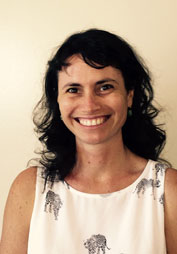A social anthropologist with a special interest in the relationship between medicine and sociopolitical change, especially in Indonesia, has been awarded the inaugural ASAA Postdoctoral Fellowship.
 Dr Catherine Smith (pictured) graduated with a PhD from the Australian National University (ANU) in 2012, with a thesis titled ‘War, Medicine and Morality in Aceh: An Ethnography of Trauma as an Idiom of Distress’. Her dissertation looks at the ways in which conflict survivors in post-conflict Aceh, Indonesia, have adopted the globalised notion of trauma into local healing practices and political imaginaries.
Dr Catherine Smith (pictured) graduated with a PhD from the Australian National University (ANU) in 2012, with a thesis titled ‘War, Medicine and Morality in Aceh: An Ethnography of Trauma as an Idiom of Distress’. Her dissertation looks at the ways in which conflict survivors in post-conflict Aceh, Indonesia, have adopted the globalised notion of trauma into local healing practices and political imaginaries.
After graduating from the ANU, Catherine completed a six-month postdoctoral fellowship at the Royal Netherlands Institute of Southeast Asian and Caribbean Studies. The fellowship enabled her to develop her dissertation into a book manuscript. Since her graduation, Catherine has worked as a sessional lecturer at the University of Queensland and a consultant for the Asia Pacific Malaria Elimination Network and, currently, as a part-time research assistant at the University of Queensland. She is also a visiting fellow at the Department of Political and Social Change, at the ANU, which will be the host institution for the ASAA fellowship. Here she will work under the supervision of Professor Edward Aspinall.
Catherine will use her fellowship opportunity to produce publications relating to her doctoral research.
‘PhD students have the opportunity to do extensive fieldwork and usually come home with large volumes of valuable data,’ Catherine said. ‘Many of us quickly find, however, that only a small amount of this data goes into our dissertations, and much of that is reduced in the process of turning the dissertation into a book.
‘This fellowship is a wonderful opportunity for me to return to my field notes and develop some of the ethnographic material that I collected during my doctoral research but that didn’t find a home within my dissertation.’
Catherine thanked the ASAA for supporting early career researchers to make the transition from part-time to full-time academic work, and for helping to ensure that early career researchers have the opportunity to publish much more of their research.
